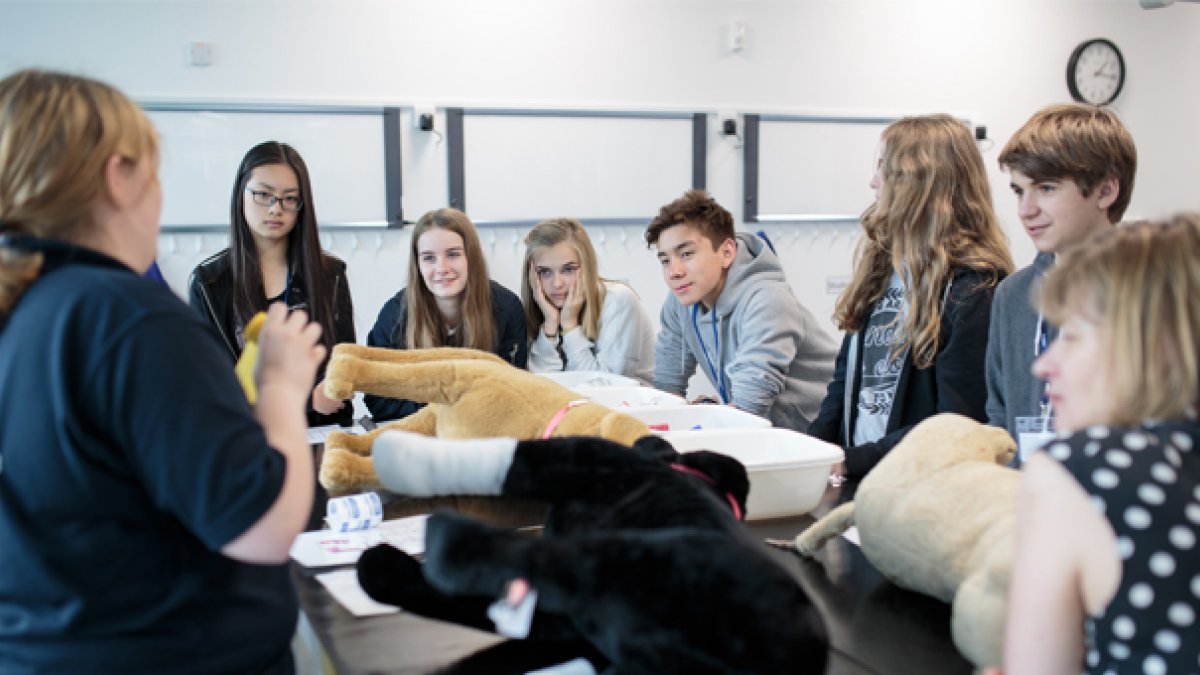What killed Steve the Stag?
Pupils from secondary schools across Guildford visited the University’s School of Veterinary Medicine to solve the mysterious death of the University’s mascot, Steve the Stag.

The outreach event saw the 14 and 15 year-olds take part in a range of activities covering the outbreak of disease, clinical skills, pathology and animal welfare.
The pupils’ learnings helped them to confirm that Steve was (fictionally!) killed by a new and never before seen infectious disease called Staggylococcus.
Amy Oatway, Widening Participation and Outreach Support Officer at the University of Surrey, explained: “Students analysed bacterial samples ‘taken’ from Steve in order to work out what killed him. They also discovered how to bandage other animals that had been injured by the rampaging mascot, and discussed the best way to cordon off the University campus to stop any potential spread of the infection."
Hailing from the heart of the University’s Manor Park campus opposite the Royal Surrey County Hospital, the School of Veterinary Medicine is built around the theme of ‘One Health - One Medicine’. The centre opened in October 2015 and provides forward-thinking interdisciplinary research and teaching to improve the health of humans and animals.
The £45m facility is made up of three buildings including a main academic centre with offices, teaching spaces, lecture theatres and research laboratories, a veterinary pathology building and a clinical skills centres with an animal examination area and animal simulators.
The School works with important regional partners, including the Royal Surrey County Hospital, Animal and Plant Health Agency, The Pirbright Institute, Surrey Wildlife Trust, the Veterinary Medicines Directorate, Fitzpatrick Referrals, Liphook Equine Hospital, Westpoint Veterinary Group and Marwell Zoo.
The £11m Veterinary Pathology Centre was launched last year, providing a state-of-the-art facility with highly skilled staff specialising in performing post-mortems on farm animals, horses, exotic and small animals. The Centre now offers veterinary pathology services to vets and the wider scientific community.